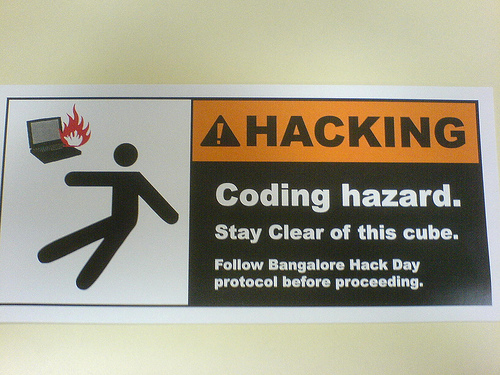On positive reflection and workplace stress reduction
Quick shot for a 'I have about 7,817 emails to read/reply to Thursday' but want to put off that torture for at least 15 more minutes, (the time allotted to research, write, edit, and hit 'Publish' on this sucker).
Did you catch the HBR.org 'Daily Stat' item from this past Tuesday? If not, here it is in its entirety (please don't come after me Harvard):
Stress levels and physical complaints declined by roughly 15% after employees were directed to spend 10 minutes writing about three things that had gone well each day, says a team of researchers led by Joyce E. Bono of the University of Florida. At the end of the work day, the employees logged on to a website where they were asked to write about events large or small, personal or work-related, and explain why they had gone well. The findings suggest that this intervention could have important effects on employee stress and health, the researchers say.
Pretty simple right?
Take about 5-10 minutes at the end of the day and deliberately think about, and document, three positives from the day - work successes, some good news in your personal life, maybe even something simple like your favorite NBA team won the game last night. Do this every day and over time, at least according to this research, your overall stress level is likely to decline, and you will start to feel better overall.
Sounds like it makes sense, lots of us forget to think about thepositives in our work or personal lives and focus on the negative. If you are encouraged/forced to write down or log in an online tool somewhere only the positive things at the end of the workday I suppose that will help you 'shut down' from work in a generally better mood and mental place than you might otherwise. Especially if the final 'work' of the day was something unpleasant or difficult or simply just a pain in the neck, (like the task of reading all your email that I am currently avoiding).
What do you think, would this kind of intentional positive reflection make a difference in reducing your stress levels?
For me, I am not so sure. Maybe it is the cynic/pessimist in me, but the second I sat down to document the three positive items for the day, I would naturally look to pair or balance them with three negatives.
And then I'd probably be back to focusing on the negatives again and stressing and you know the rest.
But what the heck, I might as well give it a shot:
Three positives from yesterday:
1. Scored two First Class upgrades on my flights home from IBM Connect
2. My old reliable truck actually started after 4 days parked outside at the airport in mostly sub-zero temperatures
3. I made it home in time to watch KD and LeBron go at it in one of the NBA's best match ups
I guess all in all that makes for a good day.
I will let you know tomorrow if I feel less stressed. I still have all that email to read though...
Happy Thursday!

 Steve
Steve

